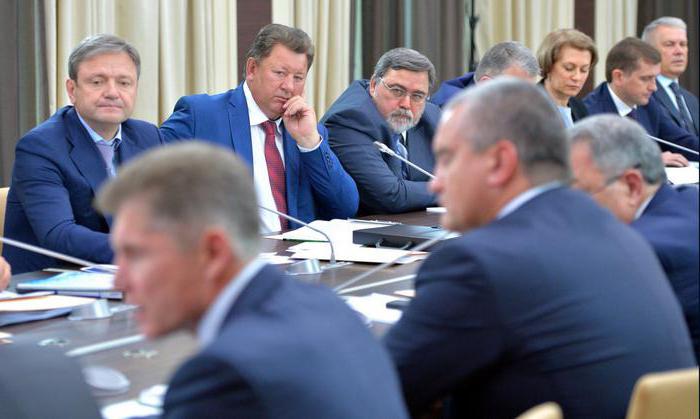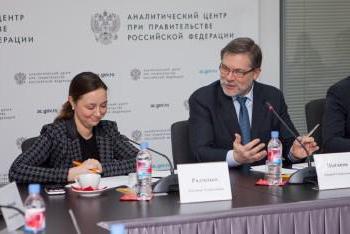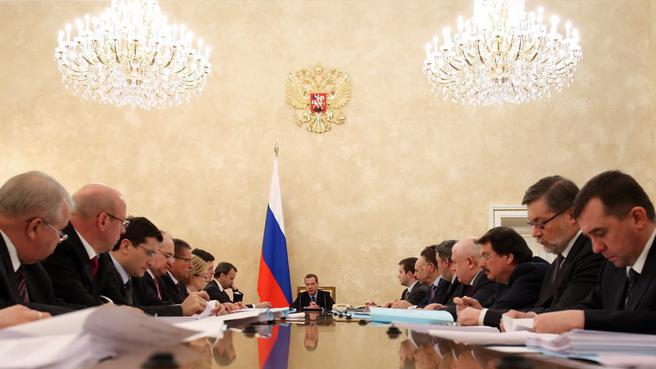State antitrust policy aims to ensure free competition in the market. To implement this task, a special federal institute has been formed. 
Antitrust System
The activities of the authorized federal instance and its territorial representations are regulated by an industry normative act. This legal document - 135-ФЗ - establishes the main provisions regarding the protection of competition. The normative act defines the functions of authorized institutions, their powers, duties and rights. In addition, the document defines the liability of entities violating the requirements of the law.
Institutional Tasks
Antitrust organizations operating in the country:
- Provide supervision of compliance with regulatory requirements.
- Identify violations.
- Take measures to curb economic crime.
- Bring guilty entities to justice.
- Prevent unfair competition and the spread of monopolies.
Territorial units are subordinate to the federal institute. Their activities are regulated by antitrust laws and regulations approved by a higher authority. The latter gives the territorial representations the corresponding powers within its competence.
Structural work
135-ФЗ determines the following powers of supervisory institutions:
- Initiation and consideration of cases of economic crimes in the field of competition.
- Issuance to business entities, executive structures of the federal, regional, local level, as well as other institutions that perform the relevant oversight functions, off-budget funds, officials, the requirements that are binding. For example, the antimonopoly authority may oblige the company to transfer to the budget the income received in connection with a violation of regulatory rules. The executive territorial structure may be ordered to amend or repeal a legal act inconsistent with the federal document.
- Bringing, in the manner and cases defined in regulatory enactments, to the responsibility of citizens (including entrepreneurs), legal entities, officials who have violated competition.
- Send lawsuits, statements related to the revealed crimes to the courts.
- Participate in proceedings regarding violations / enforcement of regulatory requirements.
- Establish a dominant position of a business entity.
- Maintain a register of enterprises whose market share of certain products is more than 35%.

The federal antimonopoly authority also has the right to issue normative acts, to give clarifications regarding the application of legal requirements applicable in the field of competition.
Economic concentration
The Antimonopoly Service of Russia carries out preliminary and subsequent supervision of various types of activities of business entities. One of the key areas of the institute's work is the sphere of economic concentration. Antitrust law does not provide a clear definition of this area. The regulatory act regulating the protection of competition in the financial markets interpreted the concept of "concentration of capital". It was considered as an acquisition, merger of financial enterprises, their acquisition of shares / assets / stakes in each other’s capital and by third parties.135-ФЗ defines economic concentration as transactions and other actions, the production of which affects the state of competition. This interpretation is considered by experts rather vague.
Antitrust control
In Art. 27 of the normative act regulating the sphere of protection of competition, cases of reorganization and creation of enterprises with the consent of the supervisory institution are identified. So, the antimonopoly authority must issue a permit if one of the following conditions is met:
- is produced merger the total value of the assets of which in accordance with the balance sheet as of the reporting (last) date preceding the day of the application, is more than 3 billion rubles;
- the total revenue of such firms (groups of individuals) from the sale of products for the calendar year that preceded the merger period is more than 6 billion rubles;
- one of the enterprises has a share of more than 35% in the market for a particular product.

Explanation
The total cost of 3 billion rubles. and total revenue of 6 billion p. act as criteria for obtaining consent from the supervisory institution to join one company to another, creating a company if the authorized capital is paid for in shares (shares) or property of another commercial legal entity. When merging financial entities and creating comm. structure provided that its UK is covered by financial assets fin. enterprises, the antimonopoly authority must give permission if there is an excess of the total value of assets established by the Government in agreement with the Central Bank. As a criterion for obtaining the consent of the supervisory authority when creating a commercial enterprise at the expense of the property of another comm. firms have rights to dispose of shares or voting shares acquired by the formed company.
Making deals with shares / stocks by commercial companies
In Art. 28 of the Federal Law No. 135, cases are identified when enterprises must obtain the consent of the supervisory institution to conclude contracts. A decision is necessary if the total value of assets according to the latest balances of persons buying shares / shares or property, and the entities in respect of which they are acquired, is more than 3 billion rubles. The antimonopoly authority also agrees to transactions if the total profit of these entities from product sales for the calendar year ended is more than 6 billion rubles. But at the same time, according to the latest balance sheet, the value of the assets of a person whose share / stock / property is acquired is more than 150 million rubles. or one of these entities is included in the registry. So, with prior permission, voting shares of AO are bought if the acquirer receives the right to dispose of more than 25%, if previously it did not have such an opportunity at all or its share was less than 25%. This requirement does not apply to the founders of the company at the time of its formation.

Section 29
It defines cases of transactions with shares, rights, assets of financial enterprises, for which the consent of the antimonopoly authority is required. Permission is necessary if the value of the shares, in accordance with the latest balance sheet, is greater than the amount determined by the government, and for credit institutions - by the Supreme Executive Institute and the Central Bank. So, with the prior permission of the control authority, shares are purchased in the LLC CC by a person (group of entities) who own at least 1/3 but not more than 50% of the capital in this company, if after the transaction the person gains the right to dispose of more than half stocks. In general, cases of obtaining the consent of the antimonopoly authority, as defined in Articles 28 and 29, are similar.
Other deals
The legislation defines cases when the consent of the antimonopoly institution is not required before committing legally important actions.At the same time, the normative act obliges the subjects to send a notice after the conclusion of the relevant transactions, if the following conditions are met:
- Legally significant events occur with the participation of persons belonging to the same group.
- The list of entities that are parties to the relationship was submitted by any participant to the antimonopoly authority in the established form no later than 1 month before the transaction. In this case, the grounds on which the persons are included in the corresponding group must be attached to the list.
- The list of subjects at the time of the transaction did not change in comparison with those submitted to the supervisory authority before the event.

Other notification cases
They are defined in Art. 30 Federal Law No. 135. In accordance with the specified norm supervisory authority must be notified by the commercial enterprise of its formation as a result of the merger, if the total value of the assets in accordance with the latest accounting balances or the total proceeds from the sale of products for the calendar year ending before the start of the connection period for the companies whose work as a result of this event will be discontinued, is more than 200 million p. In this case, the notice must be sent no later than 45 days after the reorganization. The exceptions are financial companies. Entities entrusted with the obligation to notify the supervisory institution of transactions and other actions that are subject to antitrust control have the right to submit a petition (instead of a notice) to give their consent to their implementation to an authorized authority. The latter, in turn, is obliged to consider the appeal received.
A responsibility
The main consequences of violations of regulations regarding the preliminary obtaining of consent from the antimonopoly organization, as well as the procedure for providing relevant notifications, should include:
- Liquidation of a commercial enterprise at the suit of an authorized instance.
- The reorganization of the company in the form of separation or separation in court.
- Recognition of invalidity of completed transactions at the suit of the supervisory institution.

Conclusion
In accordance with the Report on the main directions and results of the work of the Federal Antimonopoly Service of the Russian Federation submitted to the government, the strategic task of the antimonopoly service is to ensure free competition and suppress monopolistic activity within the framework of a single economic field. In accordance with this task, key areas of the institute's work are formulated. These include:
- Formation of conditions for the normal development of competition in the framework of the activities of business entities that are not natural monopolies.
- Suppression and prevention of the negative impact of local and state government structures on the functioning of markets, reduction of corruption risks in the process of placing municipal and state orders.
- Ensuring equal access of consumers to services, products, works that are implemented by natural monopolies.

The FAS has a Public Advisory Council. It includes representatives of non-profit societies, business associations. The functions of the Council include monitoring the work of the Federal Antimonopoly Service, developing recommendations for improving legislation and practice of preventing and suppressing violations of regulations. The supervisory institute also employs expert groups in specific areas of its functioning. The head of the antimonopoly service is I. Yu. Artemyev.